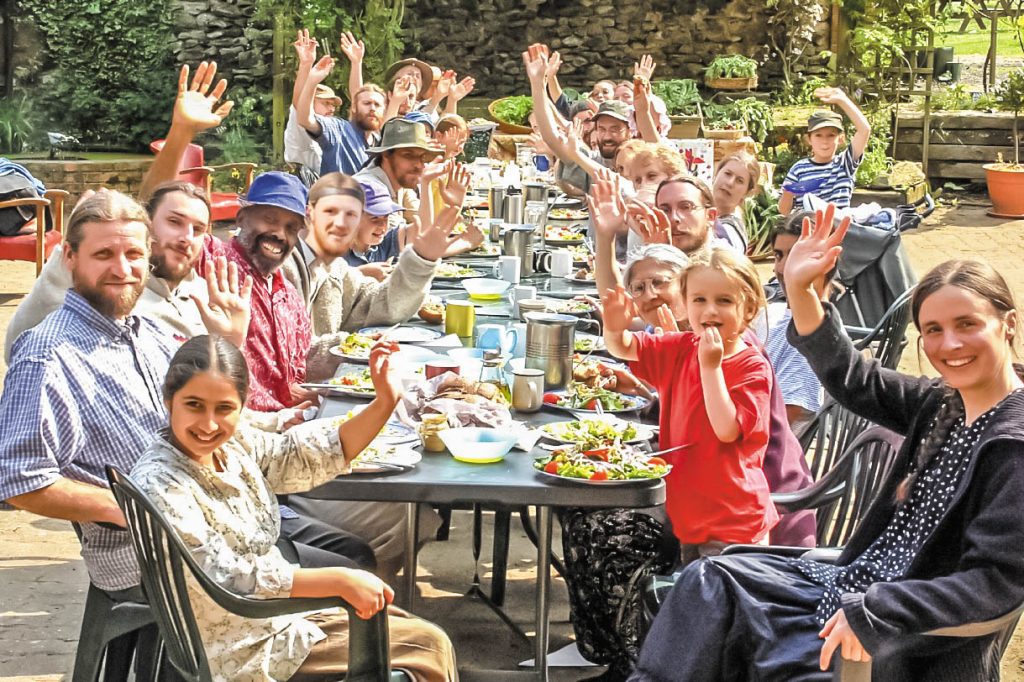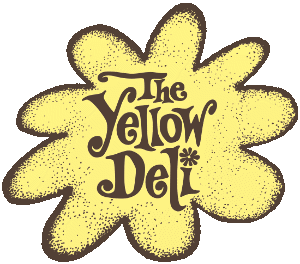PASSOVER
Passover was a day in the Bible for celebrating the deliverance of God’s people from Egypt. It was commanded in the Bible that all celebrate this day by bringing special offerings to the Temple. God wanted His people to always remember that, “You were slaves in Egypt and God delivered you by His mighty hand.” They were commanded to celebrate this day forever. This famous deliverance happened on the full moon during the first month of the year.
It is called Passover because death passed over the people of God by their obedience to put the blood of a lamb over the door of their house and all go inside. There they would eat the sacrificed lamb together as a family, inviting neighbors in to share the meal if one lamb was too much for a single family. It was a very interesting festival in the history of Israel after that. All of the details of the festival of Passover are very exciting, and the people were supposed to re-enact the famous night of deliverance year after year as the generations passed, making sure the children understood the significance of each of the specified traditions.
It was no coincidence that the death of the Savior and his resurrection happened at this very time. He was a clear “type” of the Passover Lamb who had to die for the deliverance of his people. And his resurrection three days later was also an exciting “type” of the new life of spring, with the barley crop ripening to prepare the way for a great harvest in just 49 days, as the Harvest Celebration of Pentecost occurred. All those days were very important in the Biblical calendar.
Passover remains a rather solemn occasion, specifically designed by God to make his people remember the hard times they had experienced in the past, and be thankful for his help. It was at this time of year when the Savior of mankind was proclaiming redemption from a slavery more crippling than even the slavery they had experienced in Egypt. He proclaimed to the people of Israel that they were slaves to sin, and would need deliverance. That would be his place, their Deliverer.
So, the Messiah’s death on Passover makes us so thankful. Why would we not celebrate? He was the Passover Lamb dying for the sake of delivering the people from the bondage of Egypt, which for us is the bondage of sin. His spending three days and three nights in death delivered us from that bondage. His resurrection was the joyful day of victory.
So, for Israel, this time of year had nothing to do with eggs or rabbits. Rather, the death of the Passover Lamb made way for the brilliant warmth of spring to come forth. A new life was secured by the sacrifice of this very special Passover Lamb on the cross… and the bright sunrise of his resurrection. The response to this good news of Messiah’s significant resurrection was far deeper than the thought of reproduction through eggs and rabbits… it actually brought forth much new life. We have a vivid description of what that “new life” looked like in the first century.
The first-century church began as described in the Bible, in Acts chapters 2 and 4:
“So those who received his word were baptized, and there were added that day about three thousand souls. And they devoted themselves to the apostles’ teaching and fellowship, to the breaking of bread, and the prayers. And awe came upon every soul, and many wonders and signs were being done through the apostles. And all who believed were together and had all things in common. And they were selling their possessions and belongings and distributing the proceeds to all, as any had need. And day by day, attending the temple together and breaking bread in their homes, they received their food with glad and generous hearts…” (Acts 2:41-46)
“Now the full number of those who believed were of one heart and soul, and no one said that any of the things that belonged to him was his own, but they had everything in common…” (Acts 4:32)
DID YOU EVER WONDER WHY WE NEVER HEAR THAT PART OF THE STORY?
WHAT WERE THOSE FIRST BELIEVERS DOING?
What does it mean to have “all things in common”?

Well, it looks like a very together family…
After Passover comes “The Feast of Unleavened Bread”
What is this festival about?
Leaven is the force that causes separation between people…
“Get out of here! I never want to see you again!” She screamed at him as the door slammed in his face. Another broken heart, another shattered relationship. What is the force that causes separation between individuals? Is it normal that relationships would end this way? Is there any way for people to overcome the forces that divide them, and actually grow closer to one another instead?
In our Yellow Delis and markets we are keenly interested in this topic, being the dedicated bakers that we are, constantly handling bread and dealing with leaven. We understand leaven in the natural sense, but there is another side to leaven, a spiritual side….
We are people who live together and share everything we have with one another, just like the early disciples of the first century (Acts 2:42-47 and 4:32-37).
Acts 2:44-45: Now all who believed were together, and
had all things in common, and sold their possessions and goods, and divided them among all, as anyone had need.
In our life of togetherness, these divisive forces are something that tries to come between us all the time. If we lived our own separate lives it would be easy enough to tolerate one another and get along just fine, but love is something completely different from toleration. Love brings people together and causes them to share all they have with one another. Yahshua, the Son of God, calls this divisive force “leaven.”
Matthew 16:6: Then Yahshua said to them, “Take heed and beware of the leaven of the Pharisees and the Sadducees.”
Have you ever seen leaven? Probably not. It’s microscopic. You can’t see it, but if you leave a lump of dough on the counter long enough you’ll know that leaven is in the air. Without even introducing yeast to the dough, it will start growing and the dough becomes puffed up. That’s what leaven does. The leaven emits gases that push the once tightly lumped flour particles away from each other. It’s a modifying influence that creates separation and division.
The Feast of Unleavened Bread was very significant among the first century believers.
1 Corinthians 5:6-8: Your glorying is not good. Do you not know that a little leaven leavens the whole lump? Therefore purge out the old leaven, that you may be a new lump, since you truly are unleavened. For indeed Christ, our Passover, was sacrificed for us. Therefore let us keep the feast, not with old leaven, nor with the leaven of malice and wickedness, but with the unleavened bread of sincerity and truth.
In the first century, the Days of Unleavened Bread was a set-apart time for them to inspect their relationships and do away with anything that was causing separation — not just false teachings, but lies, accusations, and every other divisive factor that threatened their unity. And just like leaven, these lies and accusations weren’t usually something a person could see. More often the leaven would come in the form of thoughts — subtle judgments and accusations against one another.
That’s what we are learning to be on guard against in our fellowship at our communities that are home for all those that run the Yellow Delis and our markets, that we wouldn’t let the leaven come in and divide us. I’m sure you’ve seen it before. Relationships that started well, and even got better for a time, but before long someone is standing outside with a door in their face just like the man at the beginning of this article. Something came in and destroyed the relationship. What was it? Leaven came in and wasn’t dealt with. Before long the problems had grown out of proportion and it was all over.
So what can be done about this divisive force called leaven? That’s what Yahshua’s teachings are for, and that is the purpose of the Feast of Unleavened Bread. This feast focuses specifically on the different ways that the evil one tries to undermine and destroy the unity of the believers, and our fellowship with our Father. Only together can we overcome this great battle in the spiritual realm, culminating with Revelation 20:1-2,
“Then I saw an angel coming down from heaven, holding in his hand the key to the bottomless pit and a great chain. And he seized the dragon, that ancient serpent, who is the devil and Satan, and bound him for a thousand years.”
A little-known truth is that Yahshua’s disciples are that chain of unity that will bind Satan. Their tight, tried and tested, unbreakable relationships will put an end to the evil on this planet. It’s what the Bible is all about. Without our being brought to complete unity, this end will never come.
John 17:20-23: “I do not pray for these alone, but also for those who will believe in me through their word; that they all may be one, as you, Father, are in me, and I in you; that they also may be one in us, that the world may believe that you sent me. And the glory which you gave me I have given them, that they may be one just as we are one: I in them, and you in me, that they may be made perfect in one, and that the world may know that you have sent me, and have loved them as you have loved me.
Attaining to the “oneness” Yahshua prayed for in the above verses is what we are living for. It is the fruit of his love poured out in our hearts and then on one another. Some people even say they can taste it in the bread.
So, we will be spending seven days with a special focus to this end. Even though we will not be at our delis or markets during this time you can still come and see us at our homes. We won’t serve any leavened bread but we will have something on hand to show you hospitality with. We certainly aren’t going to take time off being social. And… if you like, you can ask us more about this special time.
We look forward to seeing you again… SOON!

